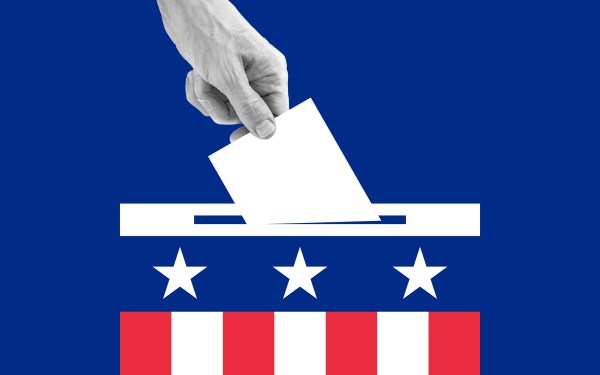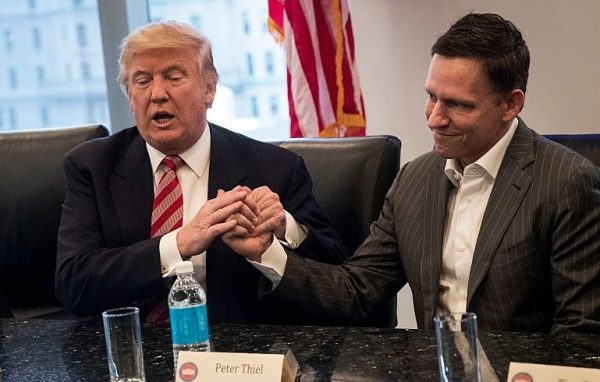Hey,
I have moderate aquaphobia.
This is not to be confused with hydrophobia, which refers to a fear of water induced by late-stage rabies rather than the fear of water induced by the fear of drowning. I always thought it was weird that a disease would cause a phobia. I mean, it’s not like people with salmonella suddenly get scared of heights. Apparently the reason rabies causes hydrophobia is that it’s a side effect of dysphagia, the medical term for difficulty swallowing. You get scared of water because you’re scared of the pain of swallowing. This is why animals drool so much when they have rabies—they don’t want to swallow.
Anyway, my aquaphobia is less about fear of drowning than an involuntary kind of panic I get from especially cold water. The fact that I almost drowned a couple times in my life doesn’t help. But it’s not the reason I take forever to get into the ocean when I go swimming. It’s just the need to work up the will to conquer my involuntary response.
I bring this up because I have a similar feeling when it comes to writing about this election. I need to work up the will to jump in. (Hence, this anti-dysphagic throat clearing.)
Ironically, one of the reasons I find it so unpleasant to write about this stuff—aside from election fatigue bordering on election Epstein-Barr—is that I have a bad case of political dysphagia these days. I just have a hard time swallowing all the garbage being thrown around by, heh, rabid partisans.
Speaking of garbage, I wasn’t particularly offended by Tony Hinchcliffe’s garbage island joke. I mean, I didn’t think it was particularly funny, though I think it could have seemed a lot funnier in the right venue. (I’m not sure that watermelon jokes about blacks are ever funny, not because they’re offensive—which they are—but because it’s such an outdated cliché.) The old saw that the three most important things in real estate are “location, location, and location” was never entirely true about real estate—a lot of people would rather live in a mansion in a middling part of town than in a refrigerator box on Park Avenue. But you get the point. Location matters. And it matters for comedy and politics, too.
Lots of jokes that are really funny in a bar or nightclub aren’t funny at Uncle Morty’s funeral or your daughter’s wedding. That’s what offended me more about Hinchcliffe’s set: the setting. It was political malpractice. Even many in the audience at Madison Square Garden realized it, going off of the relative silence punctuated by groans. Ethnic humor, even really offensive ethnic humor, can be funny. Jackie Mason did a lot of that stuff. And while I’m not a huge Mason fan, it worked (even his Puerto Rico material).
When a comedian is working a club, the rules are different than at a political rally. The bargain with the audience is different. You can tell jokes at a political rally, but the understanding is that the jokes will have a political intent. Signaling that Trump superfans like coarse ethnic humor is a bad political decision, not just because it offends the ethnic voters the campaign needs but also because it reaffirms the stereotypes about the Trump campaign that turn off a lot of other voters. George W. Bush didn’t campaign with Colin Powell in 2000 to win over the black vote, but to reassure white suburbanites.
But let’s get back to garbage. Last night Joe Biden said something really stupid. I should be more specific because that’s not exactly a rare occurrence. From the Associated Press:
“Just the other day, a speaker at his rally called Puerto Rico a floating island of garbage. Well, let me tell you something, I don’t, I don’t know the Puerto Rican that I know, the Puerto Rico where I’m fr -- in my home state of Delaware. They’re good, decent honorable people,” he said.
The president then added: “The only garbage I see floating out there is his supporters. His demonization of Latinos is unconscionable, and it’s un-American. It’s totally contrary to everything we’ve done, everything we’ve been.”
If you’ve spent the last week wondering why the Harris campaign hasn’t used Biden as a surrogate more, there you have your answer.
I think it is entirely fair to read this as Biden saying exactly what he literally said: “The only garbage I see floating out there is his supporters.” I also think it’s fair to believe that’s not what he meant to say. If you watch the video, Biden is slurring and stunted and kind of a mess. But he said what he said. To his credit, Biden quickly issued a clarification and Kamala Harris distanced herself from Biden’s original statement. This, of course, came only after the White House tried to cram a face-saving apostrophe into the word “supporters.” If you’re old enough to remember the old Electric Company’s “The Adventures of Letter-Man,” it had a similar vibe.
For a lot of people, none of this matters. J.D. Vance—who spends his days turd-polishing every weird and gross Trump statement—pounced. “A mother mourning her son who died of a fentanyl overdose is not garbage. A truck driver who can’t afford rising diesel prices is not garbage. A father who wants to afford groceries is not garbage. Kamala Harris and Joe Biden ought to be ashamed of themselves.”
It’s all fair game politically. Though I find it a little amusing that Vance could go from dismissing the garbage island stuff—“I think that we have to stop getting so offended at every little thing in the United States of America. I’m just — I’m so over it”—to profound outrage at the insult to grieving mothers and struggling fathers. Yeah, sure, there’s definitely a difference between a sitting president and an insult comic. But come on.
One fascinating thing about all of this is the near-elation of Trump supporters about Biden’s (non-Kinsley) gaffe. There’s a certain subset of Trump supporters who are still milking Hillary Clinton’s “deplorables” comment nearly a decade later. These people have zero problem with Trump hurling insults and slanders at political opponents, voters, immigrants, indeed whole countries, while simultaneously nurturing profound and enduring grievances about a dumb comment by Clinton in 2016. Biden’s garbage line scratched the same itch.
The double standard is really quite astounding if you can maintain objectivity. Trump routinely and indiscriminately calls vast numbers of people fascists, communists, vermin, scum, stupid, criminals, etc. But when people who once worked closely with him said he fit the definition of fascist, they were outraged. The Trump campaign denounced Harris’ rally last night for her “name-calling,” as if the Trump campaign has a sincere problem with name-calling. If you actually believe this stupidity, you may not be stupid, but you are definitely so drunk on partisanship that you can’t see straight.
Some of this is easily explained by the fact that defenders of Trump are thin-skinned precisely because they know in their hearts how incredibly flawed and deformed Trump’s character is. After all, people tend to be hyperdefensive about things they’re insecure about.
If you can’t beat them, join them.
But I don’t think that’s the whole story. I’ve written a lot about how partisan affiliation operates as a form of identity politics. From Suicide of the West:
“Partisanship, for a long period of time, wasn’t viewed as part of who we are,” explain political scientists Shanto Iyengar and Sean J. Westwood. “It wasn’t core to our identity. It was just an ancillary trait. But in the modern era we view party identity as something akin to gender, ethnicity or race— the core traits that we use to describe ourselves to others.” But now partisanship is becoming a bigger predictor of behavior and attitudes than race.
As other sources of meaning wither, and as we think of ourselves as residents of the national community rather than local ones, the stakes of politics inevitably increase, not just in terms of policy but psychologically. The logic of sports and war takes over. If they win, we lose, and vice versa. Citizens in California and New York become invested in partisan fights in North Carolina or Indiana as if they were skirmishes in a larger war.
I think a lot of people, mostly white people, have victimhood envy. Understandably and rightly exhausted with identity politics and all the finger-wagging that comes with it, they’ve given up fighting against it and decided that they want to get in on the action. A huge slice of MAGA world wallows in victimhood—against whites, Christians, the working class, the “forgotten man,” masculinity, etc. They’re not always wrong. Indeed, it’s precisely because they have a point that they’ve made “elite” disdain central to their political identity—which, again, is a redundancy for them. Political identity has become their identity. So, just like the Puerto Rican who is justifiably offended by calling Puerto Rico garbage, or blacks offended by watermelon jokes, or Jews offended by money-grubbing tropes, they’re offended by the insult to what is psychologically a kind of de facto ethnic identity.
This is a big reason why I’m so exhausted with what passes for politics. I like arguments about policy. Traditionally, to be a partisan in American politics is supposed to be about things, not people. What I mean is that if you were a partisan in, say, the 1980s, you were on one side or another about a political agenda, a series of policy proposals, represented by one party or the other. Sometimes it meant you were a partisan for a specific issue, sometimes for a whole slate of them.
A lot of people still think that way. I have friends who will vote for Trump despite loathing him. They tell me, and themselves, that they’re doing it because of “the issues.” Some of them are 100 percent telling the truth. Some of them, however, are lying to me and themselves.
The ones who are lying, I think, have bought into the identity politics conception of partisanship. They just hate those people so much, in part because those people hate them so much. The insipidity and asininity of binary choice voting has become binary choice tribalism.
Now, when I say they hate “those people,” I don’t mean they hate blacks, gays, immigrants, or women. The people they actually hate are the (mostly white) scolds who tell them that if they don’t agree with Democrats or progressives it’s because they hate blacks, gays, immigrants, or women. Watch MSNBC on any given day and you’ll soon hear from someone explaining that the only or the “real” reason Republicans dislike or disagree with Harris or Democrats is because they hate some or all of the Coalition of the Oppressed. After decades of working and living in the world of the American right, I have known vanishingly few conservatives who hate racial minorities. I’ve known hundreds of conservatives who hate affluent white people who sanctimoniously insist with an air of academic expertise that conservatives secretly hate racial minorities.
(And, in fairness, you can find similar stuff on Fox. It won’t take long to find someone telling you that the only or the “real” reason anyone can dislike or disagree with Donald Trump or Republicans is because they hate Christians, traditional values, America, etc.)
And then there are the people who aren’t lying to anybody. The ones who straight-up love Trump are wholly committed to wearing their love of Trump and MAGA identity like a tribal tattoo—in some cases literally.
Look, I’m a passionate believer in the idea that all poisons are determined by the dose. There’s always been some of this in politics because you can’t take human nature out of politics. People get caught up in team spirit. The religious instinct can be tricked by politics. It has ever been thus. I’m reminded of the Progressive Party convention in 1912, which I wrote about in Liberal Fascism:
The New York Times described it as a “convention of fanatics,” at which political speeches were punctuated by the singing of hymns and shouts of “Amen!” “It was not a convention at all. It was an assemblage of religious enthusiasts,” the Times reported. “It was such a convention as Peter the Hermit held. It was a Methodist camp meeting done over into political terms.” The “expression on every face” in the audience, including that of Jane Addams, who rose to nominate Teddy Roosevelt for his quixotic last bid for the presidency, was one “of fanatical and religious enthusiasm.” The delegates, who “believed—obviously and certainly believed—that they were enlisted in a contest with the Powers of Darkness,” sang “We Will Follow Jesus,” but with the name “Roosevelt” replacing the now-outdated savior. Among them were representatives of every branch of Progressivism, including the Social Gospeller Washington Gladden, happily replacing the old Christian savior with the new “Americanist” one. Roosevelt told the rapturous audience, “Our cause is based on the eternal principles of righteousness … We stand at Armageddon, and we battle for the Lord.”
In such moments, arguments about things are an afterthought, rationalization, or betrayal of partisan commitment. Everyone is expected to join a team and then bend their arguments to benefit the team. Disagreeing with Trump about, say, tariffs is a sign of disloyalty. Disagreeing with Harris about “price gouging” is denounced as a lack of commitment to the war effort to defeat Trump. After all, if Trump is a fascist, then why bring up facts that muddy her appeal? If America will be destroyed by a Harris presidency, why point out that Trump doesn’t know what he’s talking about?
My both-sidesism isn’t symmetrical. Outside a relative handful of people, there really isn’t a Harris cult of personality. But there really is a Trump cult. And cults are always and everywhere the enemy of good-faith arguments. He craps on America and conservatism daily, and his superfans eat it up. And nothing triggers my political dysphagia more than political coprophagia.
I can’t wait for this crap, and the crapping, to be over.







Please note that we at The Dispatch hold ourselves, our work, and our commenters to a higher standard than other places on the internet. We welcome comments that foster genuine debate or discussion—including comments critical of us or our work—but responses that include ad hominem attacks on fellow Dispatch members or are intended to stoke fear and anger may be moderated.
With your membership, you only have the ability to comment on The Morning Dispatch articles. Consider upgrading to join the conversation everywhere.